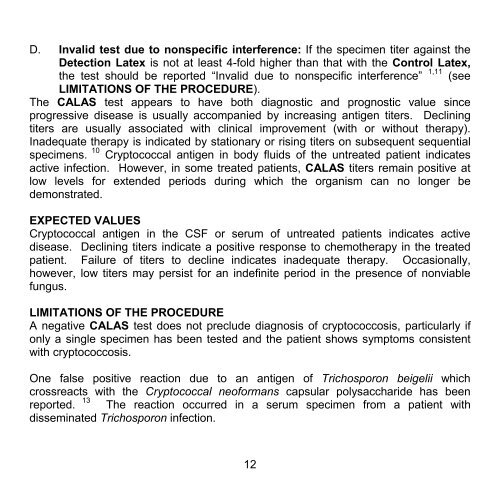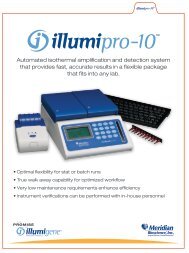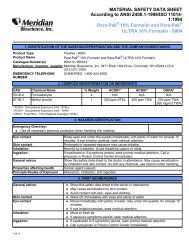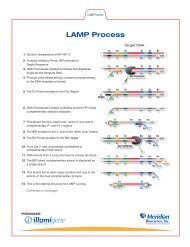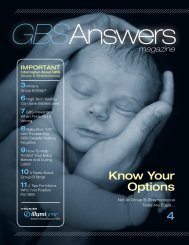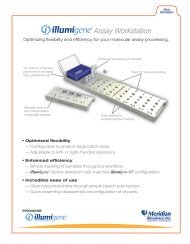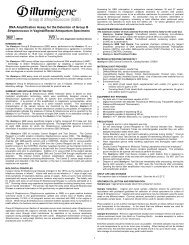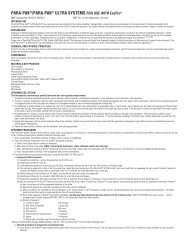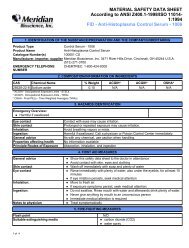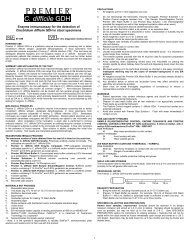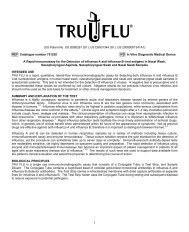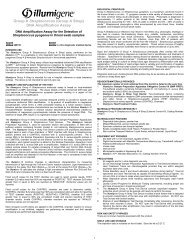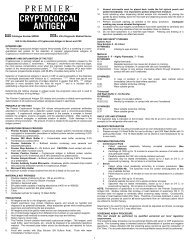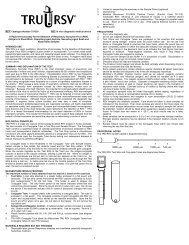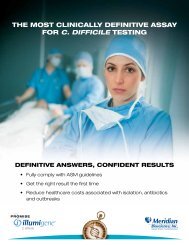Cryptococcal Antigen Latex Agglutination System (CALAS®)
Cryptococcal Antigen Latex Agglutination System (CALAS®)
Cryptococcal Antigen Latex Agglutination System (CALAS®)
Create successful ePaper yourself
Turn your PDF publications into a flip-book with our unique Google optimized e-Paper software.
D. Invalid test due to nonspecific interference: If the specimen titer against the<br />
Detection <strong>Latex</strong> is not at least 4-fold higher than that with the Control <strong>Latex</strong>,<br />
the test should be reported “Invalid due to nonspecific interference” 1,11 (see<br />
LIMITATIONS OF THE PROCEDURE).<br />
The CALAS test appears to have both diagnostic and prognostic value since<br />
progressive disease is usually accompanied by increasing antigen titers. Declining<br />
titers are usually associated with clinical improvement (with or without therapy).<br />
Inadequate therapy is indicated by stationary or rising titers on subsequent sequential<br />
specimens. 10 <strong>Cryptococcal</strong> antigen in body fluids of the untreated patient indicates<br />
active infection. However, in some treated patients, CALAS titers remain positive at<br />
low levels for extended periods during which the organism can no longer be<br />
demonstrated.<br />
EXPECTED VALUES<br />
<strong>Cryptococcal</strong> antigen in the CSF or serum of untreated patients indicates active<br />
disease. Declining titers indicate a positive response to chemotherapy in the treated<br />
patient. Failure of titers to decline indicates inadequate therapy. Occasionally,<br />
however, low titers may persist for an indefinite period in the presence of nonviable<br />
fungus.<br />
LIMITATIONS OF THE PROCEDURE<br />
A negative CALAS test does not preclude diagnosis of cryptococcosis, particularly if<br />
only a single specimen has been tested and the patient shows symptoms consistent<br />
with cryptococcosis.<br />
One false positive reaction due to an antigen of Trichosporon beigelii which<br />
crossreacts with the <strong>Cryptococcal</strong> neoformans capsular polysaccharide has been<br />
reported. 13 The reaction occurred in a serum specimen from a patient with<br />
disseminated Trichosporon infection.<br />
12


